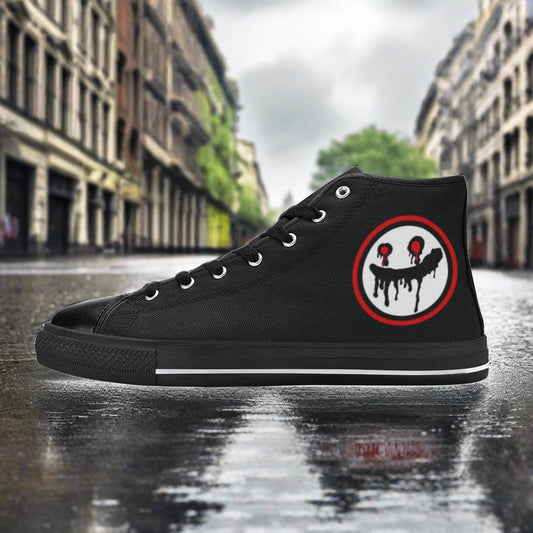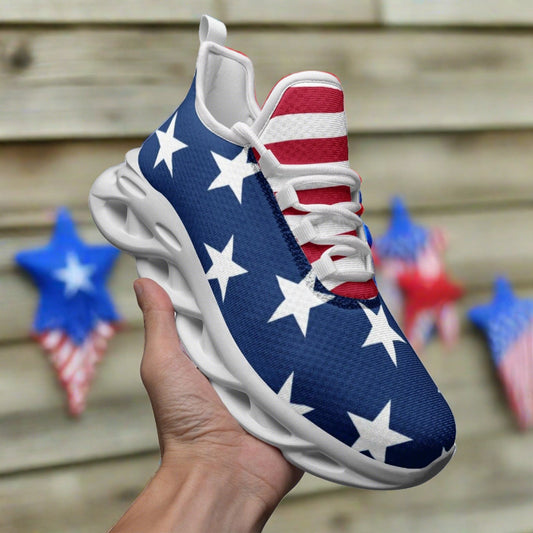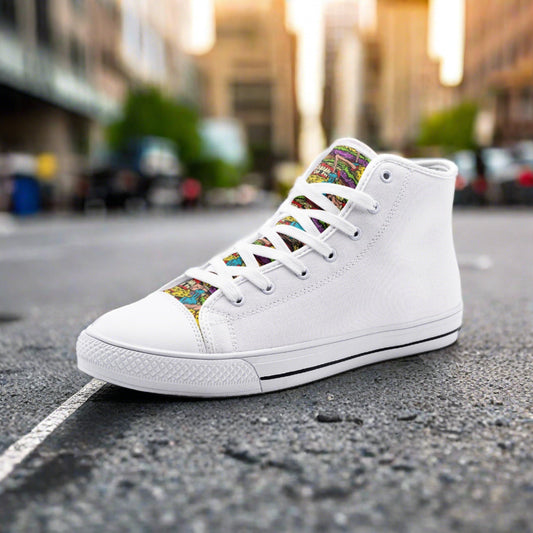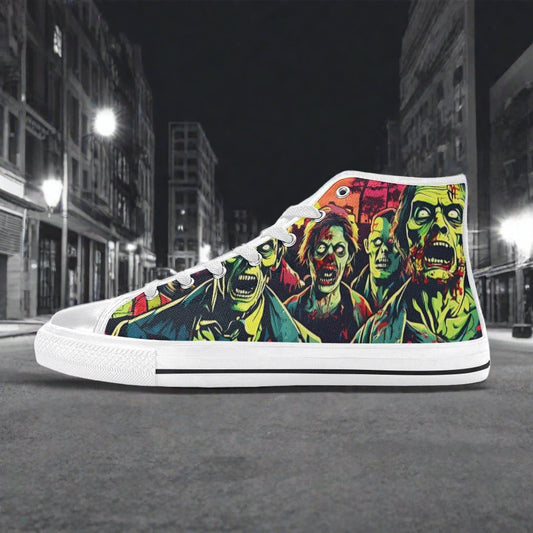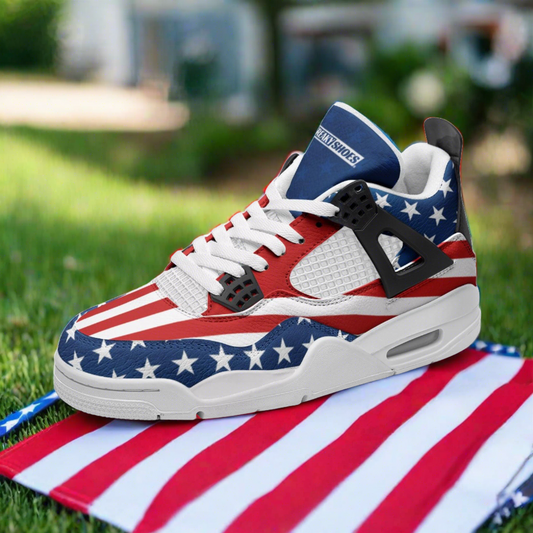Buying Doc Martens for the first time? Here’s the problem—many people order their usual size and end up with boots that feel too big. Docs are known for their roomy fit, and getting the wrong size can lead to discomfort, blisters, and many other problems.
The good news? You can avoid the sizing struggle.
So, do Doc Martens run big?
The answer is simple: Most Doc Martens run big, so sizing down is often the best move. But not all styles fit the same. Some are snug, while others stretch over time.
So, how do you get the perfect fit? What if you’ve already bought the wrong size? And how can you make breaking them in easier? This guide covers everything, so keep reading.
Key Takeaways
-
Most Doc Martens run big, especially the classic leather boots.
-
Size down if you're between sizes—half sizes should go smaller.
-
Platform styles like Jadon tend to have a snugger fit.
-
Wide-footed wearers may prefer their usual size.
-
Breaking in Docs takes time, but thick socks and insoles help.
-
Vegan leather Docs don’t stretch as much as regular leather.
-
Shrinking Docs is possible, but it's not always effective.
-
Always try them on indoors before wearing them outside.
Do Doc Martens Run Big? (Key Details)

Yes, most Doc Martens run big. Many people find that they need to size down, especially in the classic 1460 boots and 1461 shoes. These styles are known for their roomy fit, which can feel too loose if you get your usual size.
However, keep in mind that not all Docs fit the same. Platform versions like the Jadon tend to be snugger, while sandals and loafers might feel different.
And here’s the thing: The leather also plays a role. Docs start off stiff, making them seem tighter at first, but they stretch over time. Some people think their boots fit perfectly on day one, only to realize later that they’ve stretched too much.
That’s why getting the right size from the start is important.
For those with narrow feet, we think sizing down is almost always a good idea. Wide-footed wearers, though, should prefer their usual size, especially if they plan to wear thick socks.
Customer Reviews: What Buyers Say About Doc Martens Sizing
Most buyers agree—Doc Martens tend to run big. Many first-time customers regret ordering their usual size because the boots feel loose, even after breaking them in. Online reviews are filled with people saying they had to return their Docs for a smaller size.
The most common advice? Size down if you’re between sizes, especially in the classic leather styles.
Some wearers with wide feet have a different experience. They say their regular size fits just fine, but only after a tough break-in period. Others mention that the leather stretches over time, making a snug fit more comfortable in the long run.
We have also noticed that those who bought platform Docs like the Jadon boots often report a tighter fit compared to the original 1460s.
This is why checking reviews on specific models before buying is a must.
Docs are heavy-duty, but if you’re looking at something more casual, you might wonder do Hey Dudes run big or small. Knowing this helps if you’re switching between styles.
How to Measure Your Foot Length
Getting the right size starts with measuring your foot correctly. Follow these steps:
-
Place a piece of paper on a hard floor against a wall.
-
Stand on the paper with your heel touching the wall.
-
Use a pen to mark where your longest toe reaches.
-
Measure the distance from the edge of the paper (heel) to the mark (toe).
-
Repeat for the other foot, as sizes can differ.
-
Use the longest measurement to find your size in the chart below.
Doc Martens Sizing Chart & Conversion Guide
Once you measure your foot size, compare it with the following sizing guide to get the best fit:
Adults
|
Foot Length (IN) |
Foot Width |
US Women |
US Men |
UK |
EUR |
JP |
|
9 1⁄4" |
3 1⁄4" |
5 |
4 |
3 |
36 |
22 |
|
9 3⁄4" |
3 1⁄2" |
6 |
5 |
4 |
37 |
23 |
|
10" |
3 1⁄2" |
7 |
6 |
5 |
38 |
24 |
|
10 1⁄4" |
3 1⁄2" |
8 |
7 |
6 |
39 |
25 |
|
10 3⁄4" |
3 3⁄4" |
9 |
8 |
7 |
41 |
26 |
|
11" |
3 3⁄4" |
10 |
9 |
8 |
42 |
27 |
|
11 1⁄4" |
3 3⁄4" |
11 |
10 |
9 |
43 |
28 |
|
11 3⁄4" |
4" |
12 |
11 |
10 |
45 |
29 |
|
12" |
4" |
13 |
12 |
11 |
46 |
30 |
|
12 1⁄4" |
4" |
14 |
13 |
12 |
47 |
31 |
|
12 3⁄4" |
4 1⁄4" |
15 |
14 |
13 |
48 |
32 |
|
13" |
4 1⁄4" |
16 |
15 |
14 |
49 |
33 |
|
13 1⁄4" |
4 1⁄4" |
17 |
16 |
15 |
50 |
34 |
Socks
|
Size |
S/M |
M/L |
|
US Women |
5-10 |
11-16 |
|
US Men |
4-9 |
10-15 |
Kids
|
Foot Length (IN) |
Age (Approx) |
US Kids |
UK |
EUR |
JP |
|
3 3⁄4" |
0-3 Months |
1 |
0 |
16 |
8 |
|
4 1⁄4" |
3-6 Months |
2 |
1 |
17 |
9 |
|
4 1⁄2" |
6-9 Months |
3 |
2 |
18 |
10 |
|
4 3⁄4" |
9-12 Months |
4 |
3 |
19 |
11 |
Infant Footwear
|
Foot Length (IN) |
Age (Approx) |
US Kids |
UK |
EUR |
JP |
|
4 3⁄4" |
12-18 Months |
4 |
3 |
19 |
11 |
|
5 1⁄4" |
12-18 Months |
5 |
4 |
20 |
12 |
|
5 1⁄2" |
18-24 Months |
6 |
5 |
21.5 |
12.5 |
Toddler Footwear
|
Foot Length (IN) |
Age (Approx) |
US Kids |
UK |
EUR |
JP |
|
5 3⁄4" |
18-24 Months |
7 |
6 |
23 |
13.5 |
|
6 1⁄4" |
2 Years |
8 |
7 |
23.5 |
14 |
|
6 1⁄2" |
3 Years |
9 |
8 |
26 |
15 |
|
6 3⁄4" |
4 Years |
10 |
9 |
27 |
16 |
Junior Footwear (Little Kids)
|
Foot Length (IN) |
US Kids |
UK |
EUR |
JP |
|
7 1⁄4" |
11 |
10 |
28 |
17 |
|
7 1⁄2" |
12 |
11 |
29 |
18 |
|
7 3⁄4" |
13 |
12 |
31 |
18.5 |
|
8 1⁄4" |
1 |
13 |
32 |
19.5 |
|
8 1⁄2" |
2 |
1 |
33 |
20.5 |
|
8 3⁄4" |
3 |
2 |
34 |
21.5 |
|
9 1⁄4" |
4 |
3 |
36 |
22 |
Youth Footwear (Big Kids)
|
Foot Length (IN) |
US Kids |
UK |
EUR |
JP |
|
9 1⁄2" |
5 |
4 |
37 |
23 |
|
10" |
6 |
5 |
38 |
23.5 |
Just like Doc Martens, many people wonder about UGG sizing—do UGGs run big or small, and how should you pick the right size? It’s helpful to know before buying, especially since both brands can fit differently than expected.
Breaking In Doc Martens: How to Make Them More Comfortable
Breaking in Doc Martens can be painful, but there are ways to speed up the process. The leather is stiff at first, but with the right tricks, you can make shoes fit like a glove. Here’s what helps:
|
Method |
Description |
|
Wear thick socks |
They add cushioning and prevent blisters. |
|
Use a shoe stretcher |
This helps loosen tight spots overnight. |
|
Walk around the house first |
Short sessions help soften the leather gradually. |
|
Apply leather conditioner |
This makes the leather more flexible. |
|
Use heel pads or insoles |
They prevent rubbing and improve fit. |
|
Try the freezer trick |
To expand tight areas. |
Can You Shrink Doc Martens?

Yes, you can shrink Doc Martens, but it’s tricky. Unlike regular sneakers, Docs are made of thick leather, which doesn’t shrink easily. In our experience, heat and moisture can help tighten them slightly, but they won’t shrink drastically.
If they are way too big, it’s better to size down or use insoles.
Let us tell you this: One common method is using heat. A hairdryer on medium heat can soften the leather, allowing it to mold better to your foot. Just wear thick socks and walk around while warming them up.
Water is another trick. Lightly dampening the inside and letting them air dry can make them contract a bit. However, soaking them completely is a bad idea—it can ruin the leather.
We’ve found that Insoles and heel grips are the safest way to make Docs fit better. They fill up extra space without damaging the boots. Thick socks also help, especially if the boots are only slightly loose.
If your Docs are way too big, exchanging them for a smaller size is always the best option.
Tips to Get the Perfect Doc Martens Fit
Getting the right fit is crucial because Docs don’t have half sizes and breaking them in takes time. Here are some tips to make sure they fit just right:
-
Measure your feet first – Don’t guess your size; check a sizing chart.
-
Size down if in between sizes – Docs run big, so half-sizers should go smaller.
-
Try them on with socks – Thick socks change the fit, so wear what you’ll actually use.
-
Walk around indoors – Make sure they don’t slip at the heel before wearing them outside.
-
Consider insoles – If they feel slightly loose, an insole can make a huge difference.
-
Check the leather type – Soft leather stretches faster than the stiff, original one.
-
Lace them properly – Tighten them well to avoid heel slipping and discomfort.
Doc Martens vs Other Brands: Sizing Comparison
Doc Martens fit differently compared to other brands. They tend to run bigger, while brands like Timberland and Red Wing have a more snug fit. Here's a quick comparison:
|
Brand |
Fit Compared to Doc Martens |
Runs Big or Small? |
Break-in Time |
Half Sizes Available? |
|
Doc Martens |
Roomy, wide fit |
Runs big |
Long |
No |
|
Timberland |
More snug, true to size |
True to size |
Medium |
Yes |
|
Red Wing |
Snug at first, stretches later |
Runs small |
Long |
Yes |
|
Blundstone |
Snug but stretchy |
True to size |
Short |
Yes |
|
Dr. Scholl’s Boots |
More flexible, easier to wear |
Runs small |
Short |
Yes |
|
Thursday Boots |
Slimmer fit, narrow toe box |
Runs small |
Medium |
Yes |
This table shows that if you’re used to brands like Timberland or Blundstone, you might find Docs a bit roomier than expected.
Always check the specific model before buying to avoid sizing surprises.
Final Words
Finding the right Doc Martens size can be tricky, but it doesn’t have to be a headache. Here’s what to remember:
-
Most Docs run big, so sizing down is usually best.
-
Breaking them in takes patience, but thick socks help.
-
Insoles and heel grips can fix a slightly loose fit.
-
If they're way too big, exchanging them is the best solution.
-
Always check reviews for specific styles before buying.
Docs are an investment, but when they fit right, they last for years. Get the right size, break them in properly, and you’ll have boots that feel like they were made just for you!
Both Doc Martens and Timberlands are popular for their rugged look, but do Timberlands run big like Docs sometimes do? Sizing is key when you’re buying sturdy boots.












